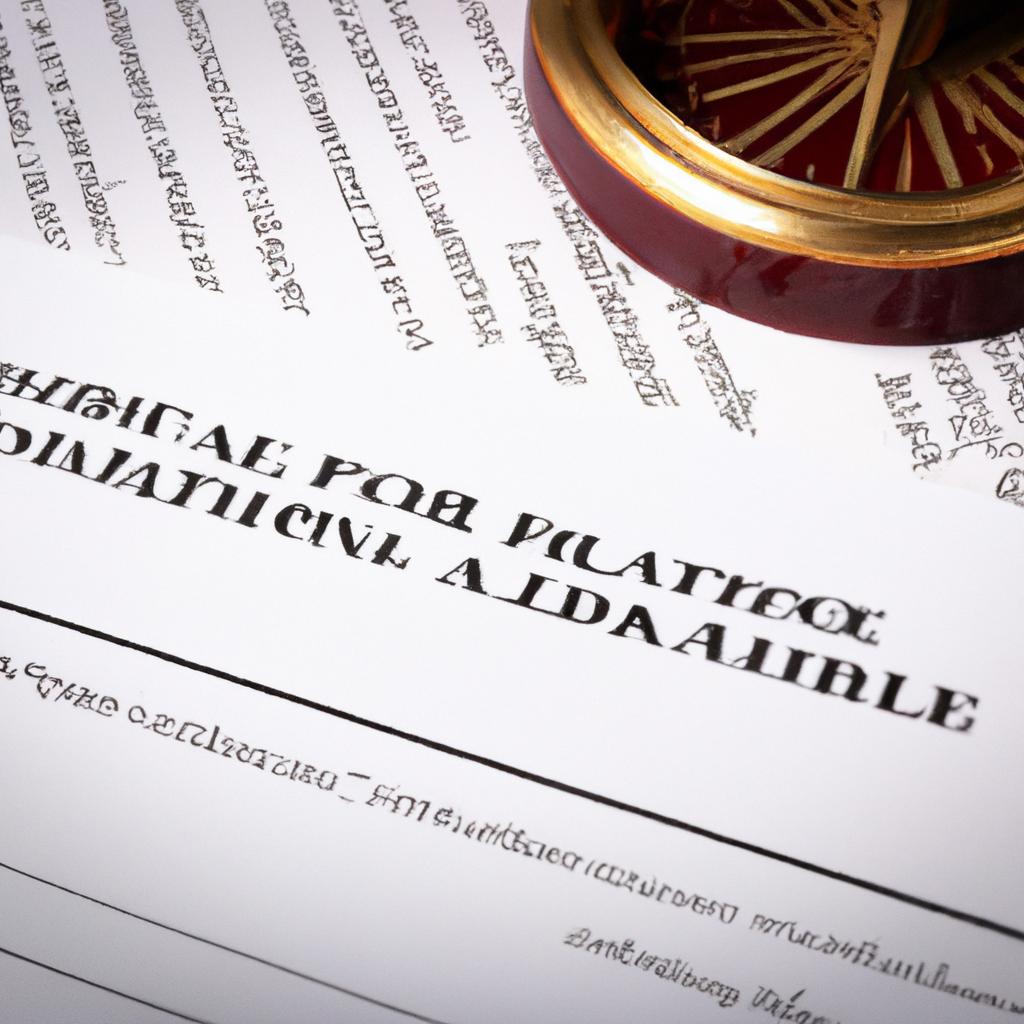In the intricate web of legal matters surrounding the passing of an unmarried individual, the determination of who shall inherit the deceased’s assets can often be a murky and complex process. As experienced attorneys at Morgan Legal Group, based in the bustling city of New York, we navigate through the intricate nuances of probate laws and estate planning to shed light on the rightful legal heirs of a deceased unmarried person. Join us as we unravel the intricacies of this often overlooked aspect of estate law and uncover the rightful successors to the estate of the departed.
Determining the Legal Heirs of an Unmarried Deceased Individual
In the event of the unfortunate passing of an unmarried individual, determining the legal heirs can be a complex and intricate process. Under the laws of intestacy, the legal heirs of a deceased unmarried person are typically determined based on their relationship to the decedent. It is crucial to understand the hierarchy of legal heirs in order to navigate the probate process smoothly and ensure that the deceased individual’s assets are distributed in accordance with the law.
According to New York State law, the legal heirs of an unmarried deceased individual are determined as follows:
- Children
- Parents
- Siblings
- Grandparents
- Aunts and Uncles
- Cousins
It is important to consult with a knowledgeable estate planning attorney to guide you through the process of and handling their estate affairs. At Morgan Legal Group, we have a team of experienced attorneys who specialize in probate and estate planning matters and can provide you with the expert legal guidance you need during this difficult time.
Navigating the Probate Process for Unmarried Decedents
When an unmarried individual passes away without a will, determining who their legal heirs are can be a complex process. In the case of intestate succession, the law will dictate who is entitled to inherit the deceased person’s estate. In New York, the following individuals are considered legal heirs of a deceased unmarried person:
- Children: If the decedent has children, they are typically the first in line to inherit the estate.
- Parents: If the decedent does not have any children, their parents may be next in line to inherit.
- Siblings: If the decedent does not have any children or parents, their siblings may be entitled to inherit the estate.
In cases where there are no living relatives, the estate may escheat to the state of New York. It is important for unmarried individuals to consult with an experienced probate attorney to ensure that their estate is distributed according to their wishes and in accordance with the law.

Understanding the Intestate Succession Laws for Unmarried Individuals
In the event of the passing of an unmarried individual without a valid Will, their estate will be distributed according to the intestate succession laws of the state in which they resided. These laws dictate who will inherit the deceased person’s assets based on their legal relationship to the decedent. When it comes to unmarried individuals, the legal heirs typically include:
- Parents: If the deceased person’s parents are alive, they will typically inherit a portion or all of the estate.
- Siblings: In the absence of parents, siblings are often the next in line to inherit the estate.
- Extended Family Members: If there are no surviving parents or siblings, other relatives such as aunts, uncles, or cousins may be entitled to inherit.
| Relationship | Inheritance |
|---|---|
| Parents | 1/2 each if both alive, full if one parent survives |
| Siblings | Equal shares if no parents survive |
| Extended Family | Next in line if no parents or siblings survive |
It is important to note that the laws governing intestate succession can vary from state to state, so it is crucial to consult with a knowledgeable attorney to ensure that the deceased person’s estate is distributed in accordance with the applicable laws. As experienced estate planning lawyers at Morgan Legal Group in New York City, we can provide guidance on the intestate succession laws for unmarried individuals and help you navigate the complex legal process of estate distribution.

Strategies for Protecting the Rights of Legal Heirs in the Absence of a Will
When an unmarried individual passes away without a will, determining who the legal heirs are can become a complex process. In the absence of clear instructions left by the deceased, state laws will dictate how the estate will be distributed among the surviving relatives. In general, legal heirs of a deceased unmarried person may include:
- Siblings
- Parents
- Children
- Grandparents
- Aunts and Uncles
It is crucial for legal heirs to understand their rights and responsibilities in the absence of a will. Consulting with an experienced estate planning attorney can help navigate the probate process and ensure that each legal heir receives their fair share of the estate. At Morgan Legal Group, our team of experts can provide guidance and support to protect the rights of legal heirs and ensure a smooth distribution of assets.
Q&A
Q: Who are the legal heirs of a deceased unmarried person?
A: The legal heirs of a deceased unmarried person are typically their closest living relatives, such as parents, siblings, or children.
Q: How is the inheritance typically divided among the legal heirs?
A: The inheritance is typically divided among the legal heirs according to the laws of intestate succession in the deceased person’s jurisdiction.
Q: What happens if the deceased person has no surviving relatives?
A: If the deceased person has no surviving relatives, their estate may escheat to the state or go to distant relatives or even friends, depending on the laws of intestate succession.
Q: Can a deceased person’s estate be divided up differently if they have a will?
A: Yes, if the deceased person has a will, their estate will be distributed according to their wishes as outlined in the will, regardless of their marital status.
Q: Are stepchildren considered legal heirs of a deceased unmarried person?
A: In general, stepchildren are not considered legal heirs of a deceased unmarried person unless they have been legally adopted by the deceased or included in the will as beneficiaries.
The Way Forward
In conclusion, understanding who are the legal heirs of a deceased unmarried person can be complex and often requires legal guidance. It is important to consider all factors such as state laws, familial relationships, and any existing wills or trusts. Ultimately, ensuring that the deceased’s assets are distributed according to the law and their wishes is crucial in navigating the process of inheritance. If you find yourself in this situation, seeking the advice of an experienced attorney can help clarify any uncertainties and ensure a smooth transition of assets to the rightful heirs. Remember, the journey of settling an estate may be challenging, but with the right knowledge and support, it can be managed effectively.


